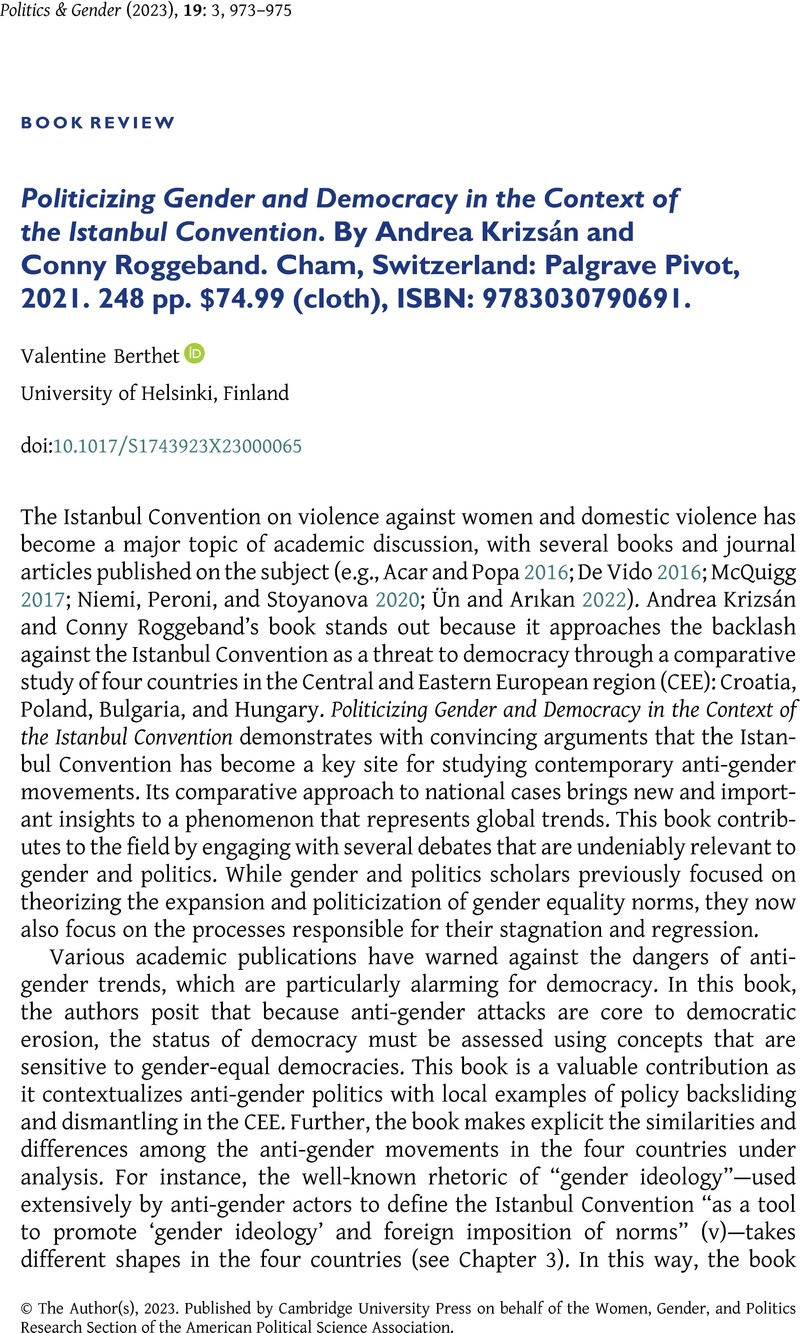No CrossRef data available.
Article contents
Politicizing Gender and Democracy in the Context of the Istanbul Convention. By Andrea Krizsán and Conny Roggeband. Cham, Switzerland: Palgrave Pivot, 2021. 248 pp. $74.99 (cloth), ISBN: 9783030790691.
Review products
Politicizing Gender and Democracy in the Context of the Istanbul Convention. By Andrea Krizsán and Conny Roggeband. Cham, Switzerland: Palgrave Pivot, 2021. 248 pp. $74.99 (cloth), ISBN: 9783030790691.
Published online by Cambridge University Press: 08 March 2023
Abstract
An abstract is not available for this content so a preview has been provided. Please use the Get access link above for information on how to access this content.

- Type
- Book Review
- Information
- Copyright
- © The Author(s), 2023. Published by Cambridge University Press on behalf of the Women, Gender, and Politics Research Section of the American Political Science Association
References
Acar, F., and Popa, R. M.. 2016. “From Feminist Legal Project to Groundbreaking Regional Treaty: The Making of the Council of Europe Convention on Preventing and Combating Violence against Women and Domestic Violence.” European Journal of Human Rights 2016 (3): 287–319.Google Scholar
De Vido, Sara. 2016. “The Ratification of the Council of Europe Istanbul Convention by the EU: A Step Forward in the Protection of Women from Violence in the European Legal System.” European Journal of Legal Studies 9 (2): 69–102.Google Scholar
McQuigg, Ronagh. 2017. The Istanbul Convention, Domestic Violence and Human Rights. London: Routledge.CrossRefGoogle Scholar
Niemi, Johanna, Peroni, Lourdes, and Stoyanova, Vladislava, eds. 2020. International Law and Violence against Women: Europe and the Istanbul Convention. London: Routledge.CrossRefGoogle Scholar
Ün, Marella Bodur, and Arıkan, Harum. 2022. “Europeanization and De‐Europeanization of Turkey’s Gender Equality Policy: The Case of the Istanbul Convention.” Journal of Common Market Studies 60 (4): 945–62.Google Scholar


